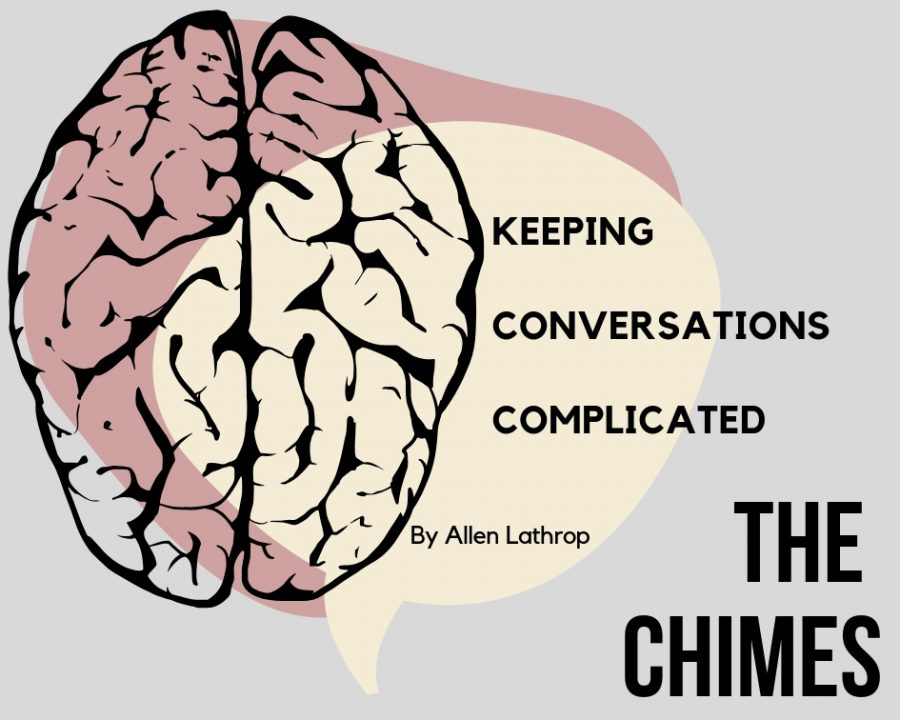It’s not that simple
Labels are for canned goods, not your neighbor’s worldview.
September 28, 2018
Bigot. Communist. Homophobe. Tree-hugger. Fascist. Intolerant. Socialist. Racist.
We like labels. They are easy, convenient and tidy. They wrap up the complexities of diverging viewpoints and package them in a nice, neat little box that we can categorize and dismiss. They are simple, and we love simple whenever we can have it. Our already hectic lives are saturated with information coming from all directions. There is more data at our fingertips than any single person could understand in multiple lifetimes. To compensate for our limits, we reduce. We have become a culture of meme-driven, 140-character snapshots and slogans. If we cannot take it in while scrolling, we ignore it. When we cannot ignore it, we label it. And therein lies the rub.
We are more than our labels
It is fair to say that some things can, and perhaps should, be simple. We can live in simple homes, drive simple cars, wear simple clothes and eat simple meals. Where technology has made life easier and less stressful, we can cheer. Yet, when we begin simplifying people and their ideas, beliefs and goals, we quickly go off the rails. Each of us has deeply held values and ideals developed over decades of experiences. Human beings are too complex to casually group into a handful of categories and apply stereotypical motivations wholesale.
Perhaps you have used one of the labels mentioned above. If you have engaged in even mildly controversial discussions on social media, odds are you have been labeled. Regardless of where you fall on the political spectrum, you have been filed under one of those headings. At the very least, if you are a Christian, some would label you “intolerant” for adhering to the core tenets of your faith.
Now ask yourself a series of questions starting with “am I?” If you are politically liberal, ask: “Am I a Communist?” If you are morally conservative, ask: “Am I a homophobe?” If you find yourself recoiling at this or any of the common labels frivolously thrown around today, consider that the person sitting across the ideological table from you might feel the same way. It is true that there are some bigots, Communists, homophobes, tree-huggers, fascists, intolerant people, socialists and racists in this world who have sinister goals. Yet, the vast majority of us have intricately nuanced views motivated by what we believe is noble. When we are victims of these generalizations, it is disheartening. When we are the offenders, it is tragic.
Stop and see the other side
So, I propose a phrase to disarm tensions between opponents and allow conversations to begin. It goes like this: “It is not that simple.” Suppose you hold a pro-life position on abortion and you are discussing the issue with a friend who considers herself pro-choice. Because this is an emotionally charged issue, it would be easy for them to paint you as trying to end women’s rights and for you to paint them as callous towards the deaths of infants. Yet, it is far more likely that you both value protecting innocent children as well as preserving women’s rights. Instead, the real issue is about how each of you views the nature and status of the unborn. It is not about ending women’s rights and it is not about hating babies—it is not that simple.
Rather than seeing the other side through a myopic misrepresentation, take a step back and give the benefit of the doubt. Try to see the other person’s perspective in the best possible light. Maybe they really do fit into one of those nice, neat labels, but what have you lost by being gracious and charitable? Unless I have misjudged the tone of Scripture, that is precisely what we are called to be. Give it a try. You might find that you see others in a better light, and that your conversations become more insightful and winsome. That seems pretty simple, right?







